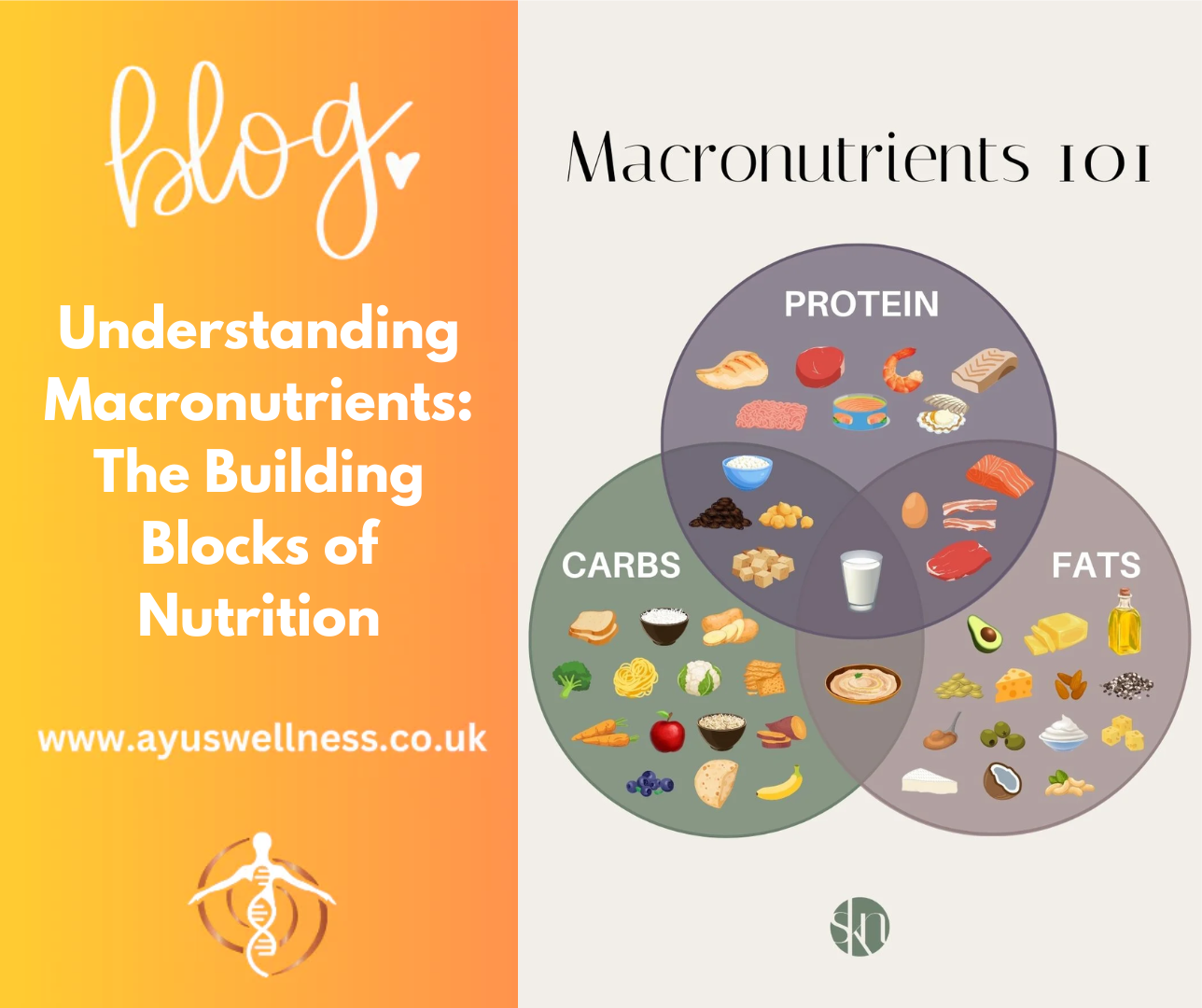
What Are Macronutrients?
Macronutrients are nutrients that the body requires in large amounts to provide energy, support growth, and maintain bodily functions. The three main macronutrients are:
- Carbohydrates
- Proteins
- Fats
Each macronutrient serves a unique purpose and plays a critical role in maintaining health.
The Role of Carbohydrates
Carbohydrates are the body's primary source of energy. They are broken down into glucose, which is used by the body's cells for fuel.
Types of Carbohydrates
- Simple Carbohydrates: Found in fruits, milk, and sugars. They provide quick energy but can cause spikes in blood sugar levels.
- Complex Carbohydrates: Found in whole grains, legumes, and vegetables. They are digested more slowly, providing sustained energy and aiding in digestion due to their fiber content.
Benefits of Carbohydrates
- Energy Production: Carbohydrates are the body's preferred energy source, especially during high-intensity activities.
- Brain Function: Glucose is essential for brain function, affecting mood, memory, and cognitive performance.
- Digestive Health: Fiber, a type of carbohydrate, promotes healthy digestion and regular bowel movements.
Sources of Healthy Carbohydrates
- Vegetables (broccoli, carrots, sweet potatoes)
- Fruits (apples, berries, bananas)
- Legumes (beans, lentils, chickpeas)
The Role of Proteins
Proteins are essential for building and repairing tissues, producing enzymes and hormones, and supporting immune function.
Types of Proteins
- Complete Proteins: Contain all essential amino acids. Found in animal products (meat, fish, eggs) and some plant sources (quinoa, soy).
- Incomplete Proteins: Lack one or more essential amino acids. Found in most plant sources (grains, nuts, seeds).
Benefits of Proteins
- Muscle Repair and Growth: Proteins provide the building blocks for muscle tissue.
- Enzyme and Hormone Production: Proteins are involved in producing enzymes and hormones that regulate various bodily functions.
- Immune Support: Proteins are crucial for producing antibodies and supporting immune health.
Sources of Healthy Proteins
- Lean meats (chicken, turkey, beef)
- Fish and seafood (salmon, tuna, shrimp)
- Dairy products (milk, yogurt, cheese)
- Plant-based sources (tofu, tempeh, lentils, nuts)
The Role of Fats
Fats are essential for storing energy, protecting organs, supporting cell growth, and aiding in the absorption of fat-soluble vitamins.
Types of Fats
- Saturated Fats: Found in animal products and some plant oils. In most instances, should be consumed in moderation.
- Unsaturated Fats: Found in avocados, nuts, seeds, and fish. Beneficial for heart health.
- Trans Fats: Found in some processed foods. Should be avoided due to their negative impact on health.
Benefits of Fats
- Energy Storage: Fats provide a concentrated source of energy.
- Nutrient Absorption: Fats help absorb fat-soluble vitamins (A, D, E, K).
- Cell Structure and Function: Fats are a key component of cell membranes.
Sources of Healthy Fats
- Avocados
- Nuts and seeds (walnuts, chia seeds, flaxseeds)
- Olive oil
- Fatty fish (salmon, mackerel, sardines)
Balancing Macronutrients for Optimal Health
Achieving the right balance of macronutrients is key to a healthy diet. Here are some tips for balancing carbohydrates, proteins, and fats:
1. Follow the Plate Method
- Half Plate Vegetables and Fruits: Fill half your plate with a variety of colorful vegetables and fruits.
- Quarter Plate Proteins: Include a portion of lean protein.
- Quarter Plate Carbohydrates: Add a serving of whole grains or starchy vegetables.
- Healthy Fats: Include a source of healthy fats, such as a drizzle of olive oil or a handful of nuts.
2. Listen to Your Body
Pay attention to your body's hunger and fullness cues. Eating when you're hungry and stopping when you're satisfied can help you maintain a balanced intake of macronutrients.
3. Customize to Your Needs
Individual macronutrient needs can vary based on age, gender, activity level, and health goals. Consult with a nutritionist or dietitian to tailor your diet to your specific needs.
4. Plan Balanced Meals
Ensure each meal includes a combination of carbohydrates, proteins, and fats. This can help stabilize blood sugar levels and provide sustained energy.
5. Avoid Extreme Diets
Extreme diets that drastically reduce or eliminate a macronutrient (such as very low-carb or low-fat diets) can lead to nutrient deficiencies and are not sustainable in the long term.
Sample Balanced Meal Plan
Here’s a simple meal plan to help you balance your macronutrients:
Breakfast:
- Greek yogurt with mixed berries, a drizzle of honey, and a sprinkle of chia seeds
Lunch:
- Quinoa salad with chickpeas, cherry tomatoes, cucumbers, and a lemon-tahini dressing
Snack:
- Apple slices with almond butter
Dinner:
- Grilled salmon with a side of roasted sweet potatoes and steamed broccoli
Snack:
- A handful of mixed nuts
FAQs
Q: How do I calculate my macronutrient needs?
A: Macronutrient needs vary based on individual factors such as age, sex, weight, activity level, and health goals. Online calculators can provide estimates, but consulting with a nutritionist or dietitian is recommended for personalized advice.
Q: Can I eat carbs and still lose weight?
A: Yes, carbohydrates are an essential part of a balanced diet. Focus on whole, unprocessed carbs and pay attention to portion sizes to support weight loss.
Q: Are all fats bad for you?
A: No, healthy fats are essential for overall health. Focus on fats from sources like avocados, olive oil, nuts, seeds, and fish, even saturated fats like butter and ghee have many beneficial effects when consumed in moderation and in the right context.
Wrapping It Up
Understanding macronutrients is essential for making informed dietary choices and maintaining a balanced diet. By incorporating the right balance of carbohydrates, proteins, and fats into your meals, you can support your body's energy needs, promote overall health, and achieve your nutrition goals. Use these practical tips to create a balanced diet and enjoy the benefits of optimal nutrition.



